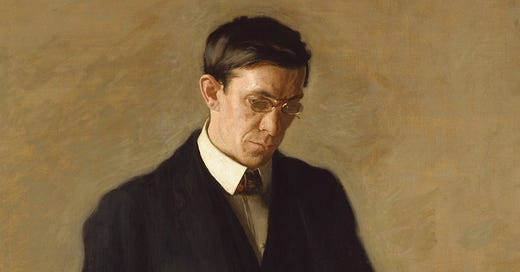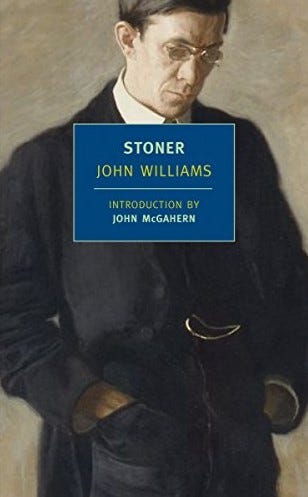Oh, I know. I’ll get to the questions you’re asking yourself if you have never read the book. But first, yes, this is the greatest American novel. Full stop.
The sad part is that probably haven’t read it, and worse, you may never have heard of it.
Let’s address the elephant in the room:
This is NOT a book about a dude who smokes a ton of weed or deals drugs.
This is NOT a book written by the Academy Award winning composer John Williams.
This is NOT a book for people who don’t enjoy a deep and textured story.
Look, I love Earnest Hemingway, Alice Walker, John Steinbeck, Toni Morrison, Jim Thompson, Harper Lee, and J.D. Salinger, et al too. And those writers are uniquely American and did amazing work.
No one would deny the brilliance of Beloved. I still read The Catcher in the Rye. Hills Like White Elephants is one of the most brutal short stories I’ve ever read. The Color Purple? To Kill A Mockingbird? The Grapes of Wrath? Although, The Pearl is my favorite. And Jim Thompson is a noir writer in a league all by himself.
And many of those books are benchmarks in education from junior high through college.
Sure, John Williams wasn’t as prolific as some of those writers, but certainly on par with what Salinger and Lee published. Now, the fact that you’ve studied one or most of those writers and NOT John Williams is perplexing for me.
As far as I am concerned there is NO better American novel than Stoner.
During his career Williams published four novels:
Nothing But the Night (1948)*
Butcher's Crossing (1960) - Butcher’s Crossing is as cinematic and picturesque as a John Ford Western or anything by Sergio Leone; and as layered and textured as anything by Robert Altman. All of Williams writing is so exquisite that you slowly begin to picture the environments of the characters; that’s why I’m using the references to cinema.
Stoner (1965) - I read Butcher’s Crossing after Stoner. Thankfully, they need not be read sequentially (this is before publishers rallied behind the idea of a literary trilogy). Having read Stoner first it allowed be to recognize the bubbling brilliance that is Butcher’s Crossing.
Augustus (1972) - Augustus was a National Book Award winner and deservedly so, but of the three, I struggled with this one the most.
Williams also published two books of poetry that I have not read.
So, what? Why is the story of William Story so significant and so uniquely American? Becasue for me, it is THE story of an American life.
Some may read this thinking they are gonna be the next Elon Musk - well, you won’t be (and frankly, shouldn’t aspire to be, but that’s another topic).
You may think you’re gonna be a rock star or some kind of “celebrity” (very unlikely, but less about your talent and more about the state of our culture, entertainment, and capitalism, etc.).
You may think that you’re going to make it into the corner office (more likely than the other two, but still… ).
Stoner is a book about change, fear, regret, safety, normalcy, love, the lack of love, the politics of work, sadness… it’s a book about life. And if you’ve lived long enough, then you know that you’ve encountered one, many, or all, of those things.
Williams prose is as perfect as perfect can be. For me the best written American novel is In Cold Blood by Truman Capote (yes, yes, non-fiction novel) - there is nary a word wasted in Capote’s re-telling of the Clutter family murders in Holcomb, Kansas.
Stoner takes place in Columbia, Missouri - and Missouri is right next to Kansas. Williams published Stoner in 1965 and Capote in 1966. And while the two books are different, the prose of each is nothing short of spectacular.
Upon reflection , there is something both savagely tragic and uniquely American about both stories.
And I don’t think it can be overlooked that both books take place smack dab in the middle of the country.
William Stoner is sent to college in the early 20th century, just as the country was moving away from an agrarian driven society, with the intention that he would return to the family farm. Stoner could then take those “book learning” things and put them to work to help his family farm.
Instead, Stoner falls in love with literature and his life radically changes course.
I have no clue what life was like in the early to mid-twentieth century; but if I had to guess, it was kind of like the life of William Stoner.
In the novel's introduction, John McGahern says Stoner is a "novel about work." This includes not only traditional work, such as Stoner's life on the farm and his career as a professor, but also the work one puts into life and relationships.
As a professor at the University of Denver, John Williams, like William Stoner, experienced frustrations in the academic world and was devoted to this work, making his novel a reflection of parts of his own life.
Published in 1965, Stoner is a book very much of its times. Which is to say that it is as existential as anything by Camus or Sarte.
Edwin Frank, the editor at the New York Review Books responsible for the 2005 reissue of the novel, suggests that Stoner contains many existential elements. "I don’t think it’s a mistake to hear Camus behind it," Frank suggests, "this story of a lone man against the world choosing his life, such as it is. I sometimes say the book’s a bit like an Edward Hopper painting, wooden houses casting stark shadows on blank green lawns."
That’s a fair assassment by Mr. Frank.
I’ll be honest, this isn’t a book that is going to leave you feeling all warm and cuddly. And it is most certainly NOT a beach read.
Stoner is a book about life - the life of William Stoner. And he led a very normal life.
Some people find pleasure in the normalcy of life. Others struggle, resist, and push back against that. And others plod along, doing the things they are “supposed” to do.
Now which of those three you identify with, provided you consider those things at all, is important. If you enjoy that kind of normalcy, Stoner may not be for you… but I’d still suggest you read it. Depending on your perspective, that kind of normal life can be sad, or even tragic (I’ll let you figure out where I land on the subject).
Today, July 4th, we celebrate the birth of America. We’ll cook on the grill, picnic, drink beer or frozen cocktails, laugh, enjoy company, and celebrate the American dream. And that is awesome.
For many, it’s a reprieve from the reality of their existence.
For others, it won’t be a reprieve, but a reminder of what could be.
And that dichotomy is what makes America, America.
And that dichotomy, that struggle, exists in John Williams Stoner - and that is what makes this book the greatest American novel.
William Stoner isn’t unique.
He is neither hero nor anti-hero.
In one way or another, William Stoner could be, and probably is, 99.9% of the American population.
*if you find this novel anywhere, DM me.
*there is allegedly a movie of the book in development with Casey Affleck attached.
*if you don’t read, I may suggest the unabridged version on Audible - it’s very good.






